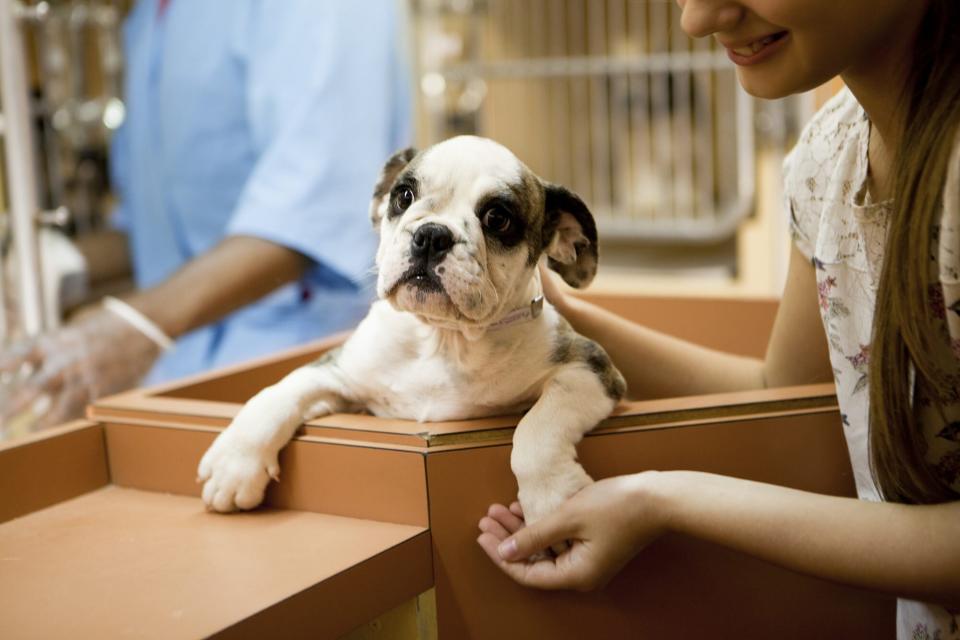6 Tips First-Time Dog Parents Should Know Before Adopting
Adding a four-legged friend to your family is an exciting and important decision. Because of this, it's certainly not a choice that should be made impulsively. If you're an aspiring first-time dog parent, here are some tips to consider before bringing your new furry best friend home.
Be Honest About Your Lifestyle
"A lot of people think, 'I'm a nurse and work 12-hour shifts, so I can't adopt a dog' and that's just not true," says Emily Cook of the Humane Society of Charlotte. Cook explains that anyone with love to give can be an excellent pet parent. However, she notes that it's important to be honest with yourself about the kind of dog that might be best suited for your lifestyle.
Additionally, you'll also want to consider how you prefer to spend your free time, says Angela Mincolla, founder of Charlotte-based Angela's Ark, a 501(c)3 rescue.
"Do you like to spend your weekends hiking? In that case, I'd discourage you from adopting a French bulldog, pug, or other breed with a flat nose, as those dogs don't do well on long hikes in warm conditions," Mincolla says. "If you're a family that has more of a sedentary lifestyle, I'd say working or sport breeds, like shepherds and some of the pointers, probably won't be a great fit based on your activity level."
You'll also want to consider what size dog would be the best fit for your family, Mincolla notes. For example, larger breeds tend to be more at risk of accidentally knocking small children over.

M_a_y_a / Getty Images
Prepare Yourself for the Financial Obligation of Dog Ownership
Dogs are adorable, loving, and make for perfect companions, but first-time dog owners should remember that your pooch will come with some necessary expenses.
"There's no such thing as a free or low-cost dog," Mincolla says. "If you're looking to budget to adopt a dog, I'd suggest reaching out to a local vet. They can give estimates on vaccines, food, heartworm prevention, and other expenses you can expect when you adopt."
Carefully Assess Where the Dog Is Coming From
If you're looking to adopt a dog from a local rescue or animal shelter (yay, adopt don't shop!) you'll want to take some time to get familiar with the organization ahead of time.
"Take a look at what their adoption application looks like," Mincolla says. "Do they have a policy that says the animal comes back to them if it doesn't work out for whatever reason? You'll also want to look at the average time that they have a dog before adopting them out. If they get them in on Friday and adopt them out on Monday, they're limited in how much they can really know about this animal."
Working with a reputable organization ensures that you have as much detail as possible about your potential pup, which allows you to make a well-informed decision about whether they'd be a good fit for your family.
Know That Personality Varies from Dog to Dog
While research is certainly beneficial and can help you narrow down what you're looking for in your favorite furry companion, don't be too quick to cross a particular breed off your list.
"Dogs are just like humans in that their personalities can be very different, even among dogs from the same litter," Cook says.
When you're adopting a dog, don't think in absolutes. This is especially true if you're getting your dog from a shelter or a rescue, where they're more likely to be a mixed breed.
Give Careful Consideration Before Adopting a Puppy
While puppies are hard to resist, take time to think through what life with a puppy in your home would be like before making a commitment.
"With a puppy, you can shape their personality traits since there's a certain element of nature versus nurture. You also get to experience them learning everything for the first time. Everything is new to them. The house. Your family. All of it," Cook says.
But with that adorable puppy energy and enthusiasm comes a flip side worth considering.
"You also need to think about, 'Am I okay with teaching this puppy everything at once?' Potty training. Crate training. Being gentle with the baby," Cook says.
Give Your New Pup Time To Adjust
Regardless of the age, breed, or size of the dog you adopt, it may take them a few weeks to adjust to their new surroundings. If your new addition tries to hide, won't eat, or isn't especially social after arriving at your home, give them space, time, and empathy. Cook says the adjustment period can take between two to four weeks, depending on the dog and the situation they're coming from.
There are so many homeless dogs that would love your attention and care. Before you find your next furry best friend, give careful thought to the kind of dog that would be a fit for your lifestyle. There are no right or wrong answers, it's solely a matter of what works for your family.

